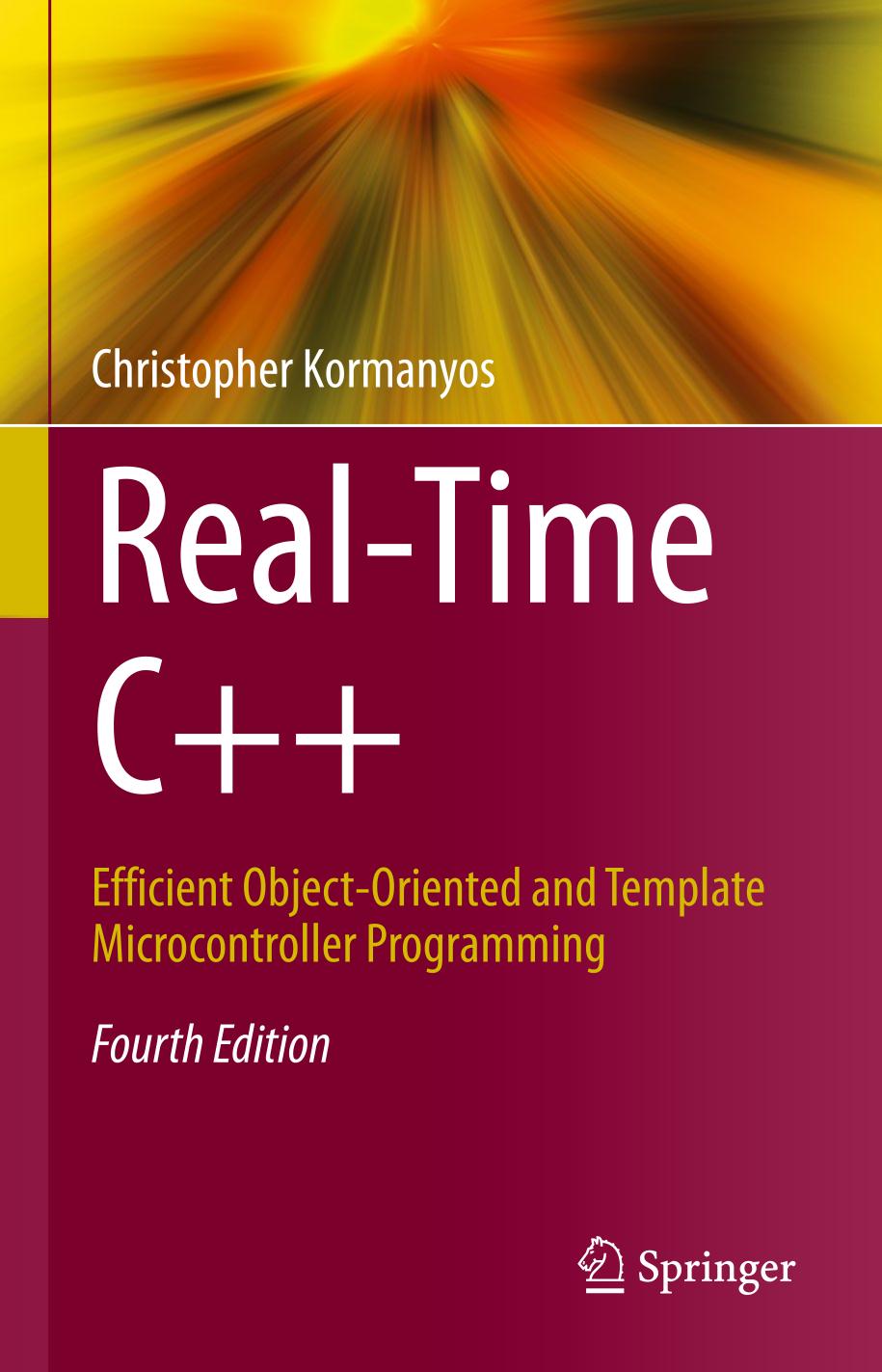

Most ebook files are in PDF format, so you can easily read them using various software such as Foxit Reader or directly on the Google Chrome browser.
Some ebook files are released by publishers in other formats such as .awz, .mobi, .epub, .fb2, etc. You may need to install specific software to read these formats on mobile/PC, such as Calibre.
Please read the tutorial at this link: https://ebookbell.com/faq
We offer FREE conversion to the popular formats you request; however, this may take some time. Therefore, right after payment, please email us, and we will try to provide the service as quickly as possible.
For some exceptional file formats or broken links (if any), please refrain from opening any disputes. Instead, email us first, and we will try to assist within a maximum of 6 hours.
EbookBell Team

4.0
36 reviewsWith this book, Christopher Kormanyos delivers a highly practical guide to programming real-time embedded microcontroller systems in C++. It is divided into three parts plus several appendices. Part I provides a foundation for real-time C++ by covering language technologies, including object-oriented methods, template programming and optimization. Next, part II presents detailed descriptions of a variety of C++ components that are widely used in microcontroller programming. It details some of C++’s most powerful language elements, such as class types, templates and the STL, to develop components for microcontroller register access, low-level drivers, custom memory management, embedded containers, multitasking, etc. Finally, part III describes mathematical methods and generic utilities that can be employed to solve recurring problems in real-time C++. The appendices include a brief C++ language tutorial, information on the real-time C++ development environment and instructions for building GNU GCC cross-compilers and a microcontroller circuit.
For this fourth edition, the most recent specification of C++20 is used throughout the text. Several sections on new C++20 functionality have been added, and various others reworked to reflect changes in the standard. Also several new example projects ranging from introductory to advanced level are included and existing ones extended, and various reader suggestions have been incorporated. Efficiency is always in focus and numerous examples are backed up with runtime measurements and size analyses that quantify the true costs of the code down to the very last byte and microsecond.
The target audience of this book mainly consists of students and professionals interested in real-time C++. Readers should be familiar with C or another programming language and will benefit most if they have had some previous experience with microcontroller electronics and the performance and size issues prevalent in embedded systems programming.